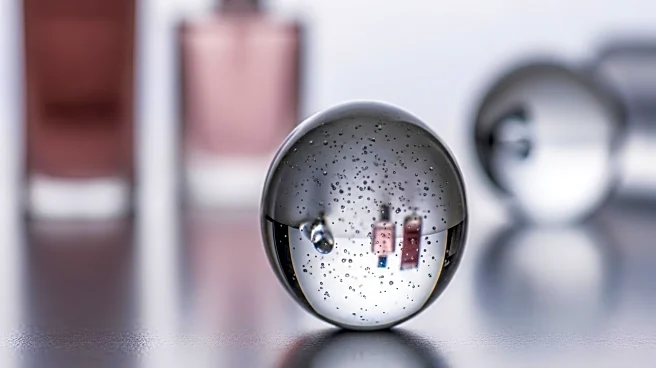What is the story about?
What's Happening?
The European Union's regulation banning intentionally added microplastics is putting pressure on North American cosmetics brands, especially those with international operations. The regulation, part of the EU REACH framework, includes transition periods for different product types, with deadlines ranging from 2027 to 2035. Brands exporting to Europe or involved in global supply chains are urged to begin reformulating products to comply with these regulations. The regulation is driving innovation in biodegradable alternatives, as brands seek to maintain product performance while adhering to new standards.
Why It's Important?
The EU's microplastics regulation is crucial for North American beauty brands as it affects their ability to compete in international markets. Compliance with these regulations is becoming urgent, and brands must invest in research and development to find biodegradable alternatives that do not compromise product quality. This shift is also reflective of changing consumer preferences, with increased demand for sustainable products. Brands that successfully adapt may gain a competitive edge, while those that fail to comply risk losing market share.
What's Next?
Brands are expected to accelerate their reformulation efforts to meet upcoming deadlines, with rinse-off products being a priority due to the 2027 cutoff. The regulation's impact is likely to extend beyond Europe, influencing global standards and consumer expectations. North American brands may need to align with these evolving regulations to maintain their competitiveness. Additionally, certifications like COSMOS and Fair Trade are becoming more important in ingredient sourcing and product positioning.















